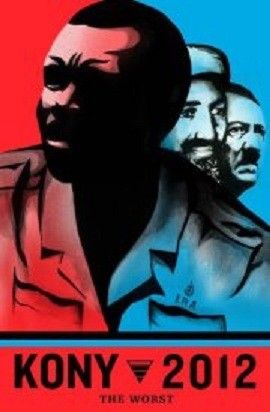Kony 2012: Invisible Children Launches Global Day of Action

The Invisible Children NGO has shrugged off criticism over its Kony 2012 campaign to call for a day of action demanding the arrest of Ugandan warlord Joseph Kony.
Invisible Children has defended its operation and called for a worldwide day of action called Cover the Night on 20 April.
Thousands of activists and supporters of the campaign are expected to take part in the initiative to increase pressure against Kony, whom they want brought to trial.
"We'll cover the night with posters, flyers, stickers, etc. We'll help make Kony famous in Philadelphia. Bring your posters, stickers, anything to help get the word out. Remember, this is supposed to be a non-violent protest," the event's Facebook page reads.
The organisation said it would like to see at least one million Kony posters put up across the United States.
Parallel events are expected to take place in the UK, Italy, Belgium, Lebanon, South Korea and other countries, according to Cover the Night's website.
The organisation's video, Kony 2012, calling for Kony's arrest was viewed 49 million times within days of being uploaded on YouTube.
Kony, 51, is the leader of the Lord's Resistance Army (LRA), a Ugandan armed militia which sought to overthrow the government.
The International Criminal Court in the Hague has issued a warrant for his arrest.
Since it began its armed rebellion in 1986, the LRA has abducted an estimated 66,000 children who have been used as soldiers.
The Kony 2012 campaign faced a backlash after journalists and analysts, both within and outside Africa, said it wrongly portrayed the LRA's activities as targeting only Uganda.
While the LRA terrorised the northern part of the country for 20 years, it has since left Uganda and moved to the neighbouring countries of the Central African Republic, South Sudan and the Democratic Republic of the Congo.
In addition to questions being raised over Invisible Children's finances, the group was also criticised for backing military operations in Uganda and supporting the Ugandan army, which has also been accused of committing human rights violations.
© Copyright IBTimes 2025. All rights reserved.





















